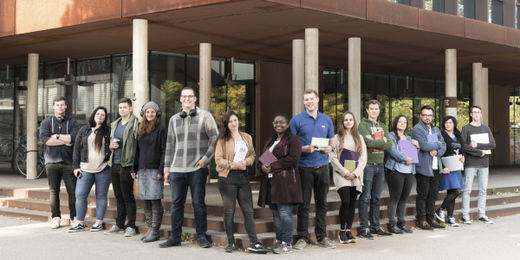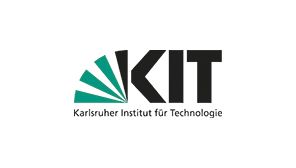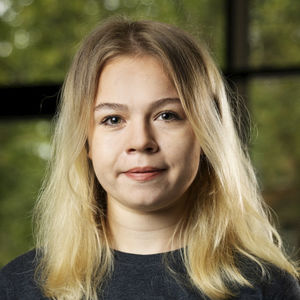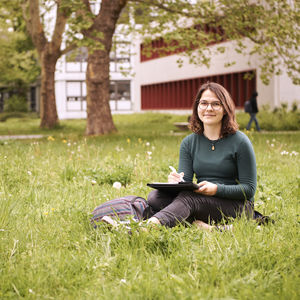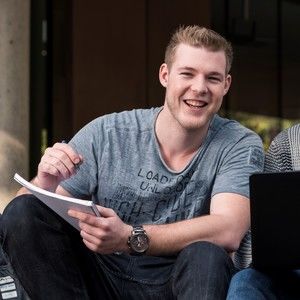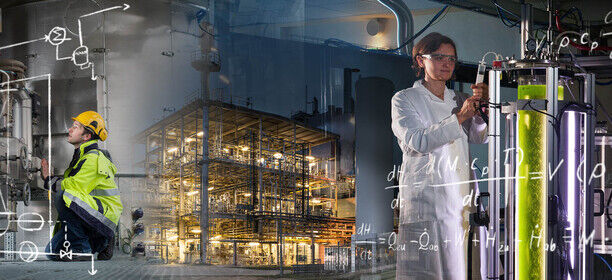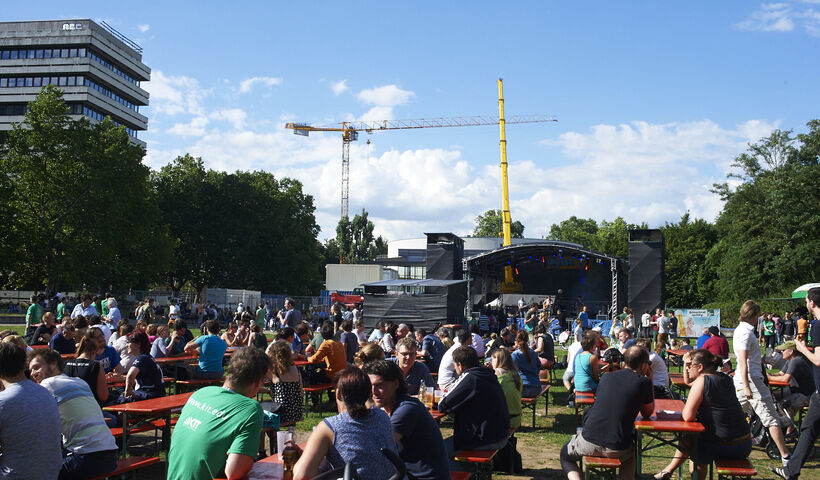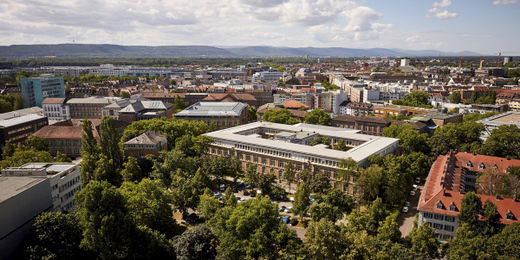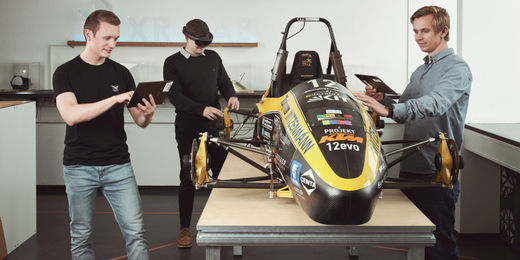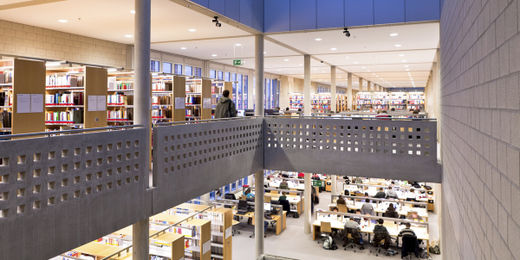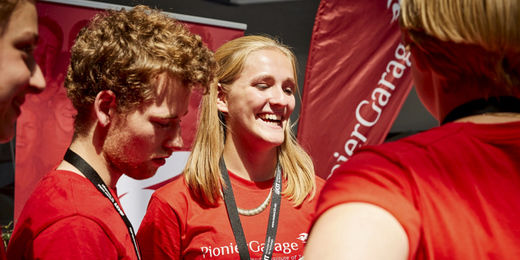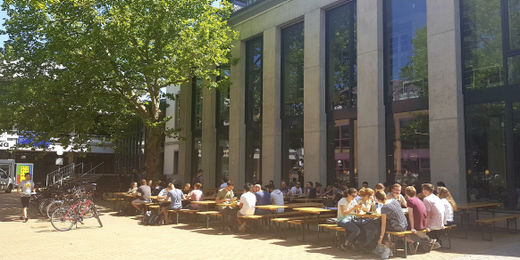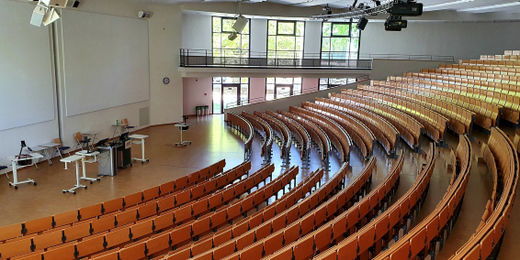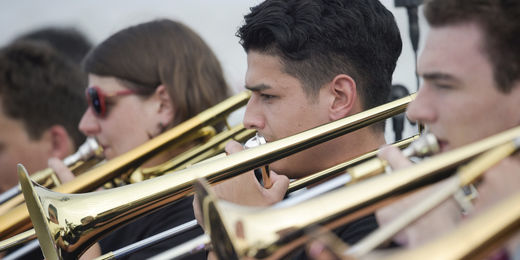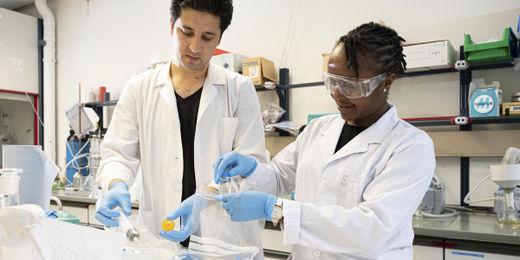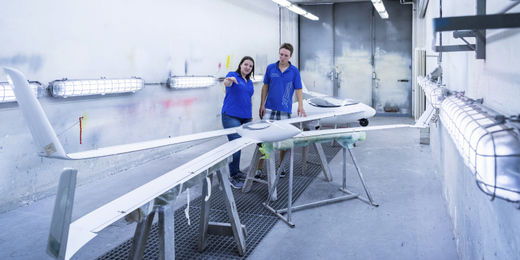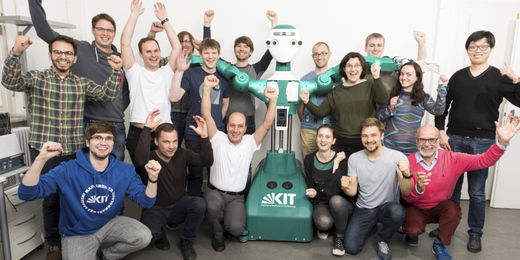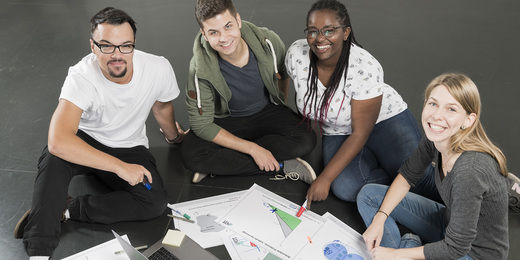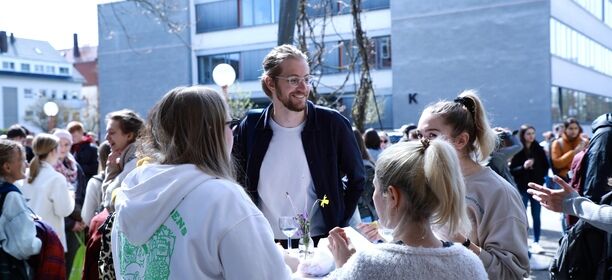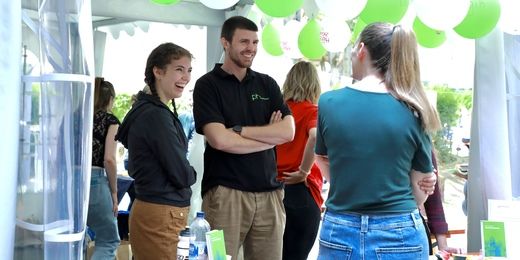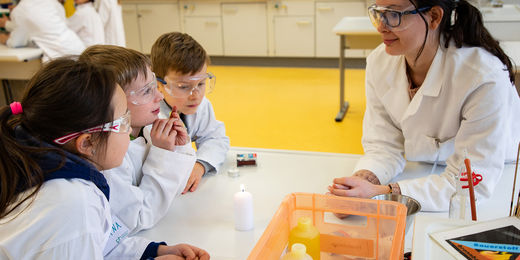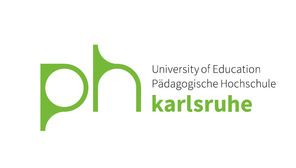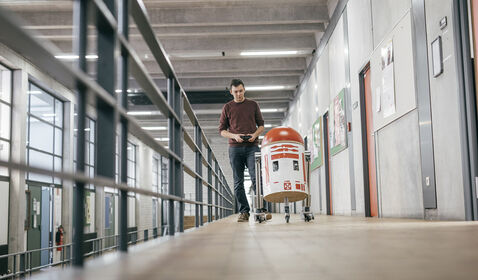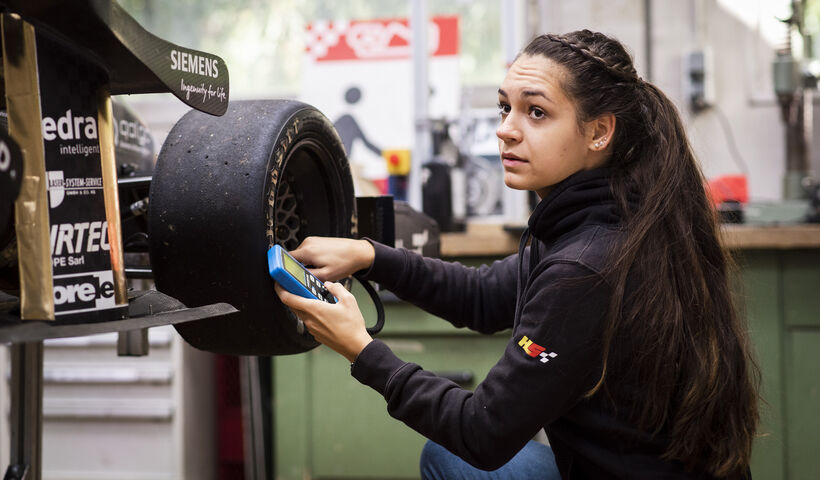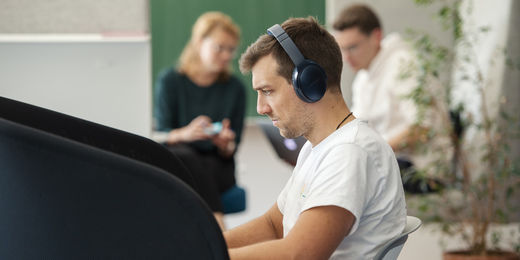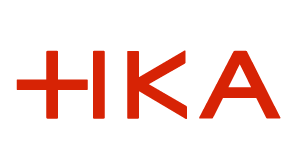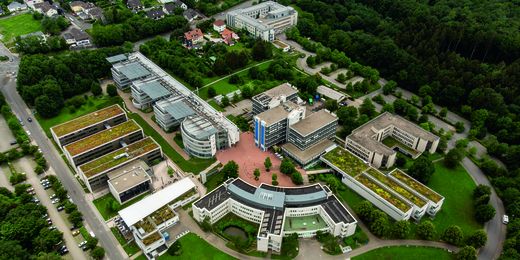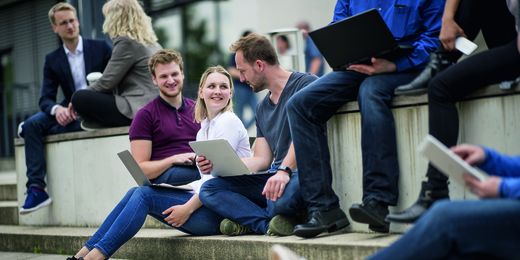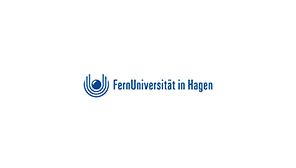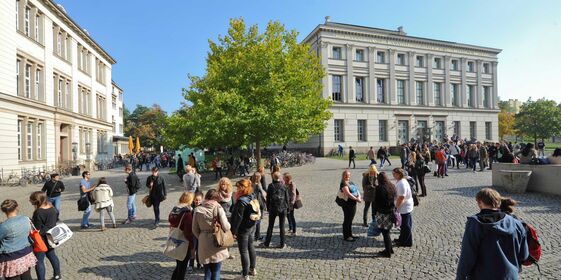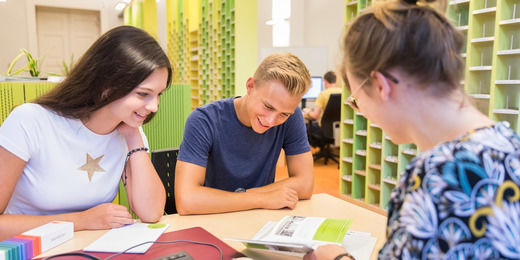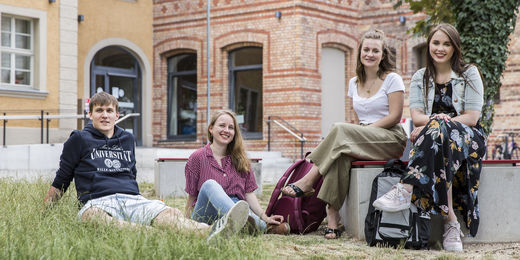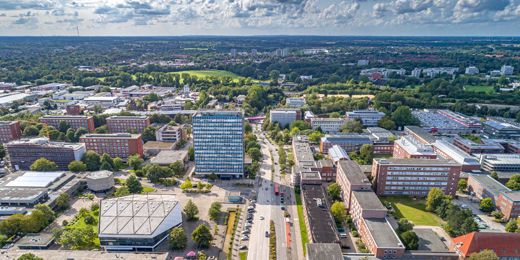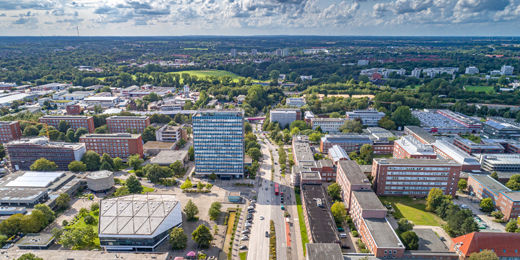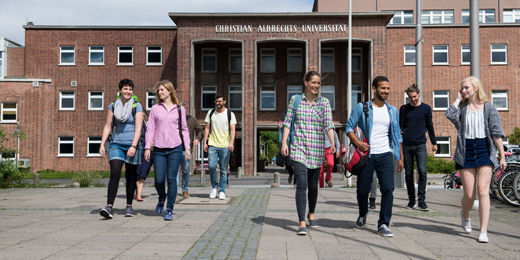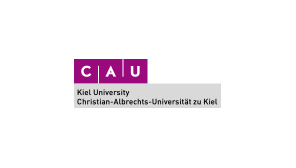Karlsruher Institut für Technologie
- Promotionsrecht: Ja
- Trägerschaft: öffentlich-rechtlich
- 2009 gegründet
- 22.201 Studierende
Nah an der Forschung und mit besten Berufsaussichten in Zukunftsfeldern wie Künstliche Intelligenz, Klima, Energie und Mobilität. Erlebe am KIT die ganze Vielfalt von Wissenschaft und Technik! Hier hast Du die Wahl zwischen über 100 Bachelor- und Masterstudiengängen.
KIT – mehr als nur Studieren!
Hochschule im Fokus
Das Karlsruher Institut für Technologie (KIT) ist Exzellenzuniversität und eine der führenden technischen Universitäten Europas. Das KIT vereint Universität und Großforschung und bietet dir eine einzigartige Verzahnung von Forschung und Lehre. Schon früh im Studium wirst du in aktuelle Spitzenforschung in Feldern wie Klima, Energie, Mobilität und intelligente Technologien für die Informationsgesellschaft einbezogen.
Wähle zwischen über 100 zukunftsorientierten Studiengängen in Natur- und Ingenieurwissenschaften, Wirtschaftswissenschaften, Geistes- und Sozialwissenschaften sowie im Lehramt. Außer den Abschlüssen Bachelor und Master of Science, Education oder Arts kannst du am KIT auch einen Doppelabschluss erwerben. Dabei studierst du nicht nur am KIT, sondern auch an einer ausländischen Hochschule in Europa beziehungsweise Übersee. Außerdem bieten wir zahlreiche internationale Austauschprogramme, an denen du für ein bis zwei Semester teilnehmen kannst.
Während des Studiums profitierst du bereits im Bachelor von vielfältigen, fachlichen Wahl- und Vertiefungsmöglichkeiten. Außerdem bieten wir dir ein breites Zusatzangebot zum Beispiel am House of Competence, am Zentrum für Angewandte Kulturwissenschaft oder am Sprachenzentrum. Lust den eigenen Horizont zu erweitern? Dann schnupper doch einfach in andere Studiengänge oder besuche eine überfachliche Veranstaltung. Wie wäre es zum Beispiel mit einem Kurs zum Thema „Zukunft gestalten“, „Politik und Globalisierung“ oder möchtest du vielleicht eine neue Sprache lernen?
Auf dem zentral gelegenen Campus Süd des KIT, direkt neben dem Schlosspark und der Innenstadt, findest du alles, was du für ein erfolgreiches Studium brauchst: Die 24h-Bibliothek, gut ausgestatte Labore, Werkstätten und Lernräume, das Rechenzentrum, zahlreiche Grünflächen, die zum Verweilen einladen, die Mensa sowie verschiedene Cafeterien, bei denen du zwischendurch auftanken kannst.
Stimmen von Studierenden
Kaiserstraße 12
76131 Karlsruhe
Tel: 0721 608-0
Fax: 0721 608-44290
Hochschule im CHE-Ranking abschneiden.
Das Karlsruher Institut für Technologie gehört zu den Universitäten.
Ja, du kannst am Karlsruher Institut für Technologie promovieren.
Das Karlsruher Institut für Technologie ist eine öffentlich-rechtliche Hochschule. Es gibt staatliche und staatlich anerkannte Hochschulen, die meist in Universitäten, Fachhochschulen (international: University of Applied Sciences) und Kunst- sowie Musikhochschulen unterteilt werden. Der überwiegende Teil der Hochschulen wird vom Staat finanziert und befindet sich daher in staatlicher Trägerschaft. Dort fallen in der Regel nur geringe Semesterbeiträge an. An den privaten Hochschulen hingegen, die sich über private Trägerschaften finanzieren, können wesentlich höhere Studiengebühren anfallen. Einen Weg, die finanziellen Hürden dieser Hochschulen zu umgehen, können Stipendien darstellen.
Es gibt außerdem Hochschulen, die von der protestantischen oder katholischen Kirche betrieben werden.
Das Karlsruher Institut für Technologie wurde im Jahr 2009 gegründet.
Insgesamt gibt es 22201 Studierende am Karlsruher Institut für Technologie.
Standort dieser Hochschule ist Karlsruhe.
Hier findest du die Fristen und Termine für deine Bewerbung:
- Vorlesungszeit:
-
21.10.2024 - 15.02.2025
- Studienanfänger:
-
Bis 15.09.2024
- Hochschulwechsler:
-
Bis 15.09.2024
- International Studierende aus der Europäischen Union:
-
Bis 15.09.2024
- International Studierende aus Staaten, die nicht Mitglied der EU sind:
-
Bis 15.07.2024
- Studienanfänger:
-
Bis 15.07.2024
- Hochschulwechsler:
-
Bis 15.07.2024
- International Studierende aus der Europäischen Union:
-
Bis 15.07.2024
- International Studierende aus Staaten, die nicht Mitglied der EU sind:
-
Bis 15.07.2024
- Studienanfänger:
-
Bis 30.09.2024
- Hochschulwechsler:
-
Bis 30.09.2024
- International Studierende aus der Europäischen Union:
-
Bis 30.09.2024
- International Studierende aus Staaten, die nicht Mitglied der EU sind:
-
Bis 15.07.2024
- Studienanfänger:
-
Bis 15.07.2024
- Hochschulwechsler:
-
Bis 15.07.2024
- International Studierende aus der Europäischen Union:
-
Bis 15.07.2024
- International Studierende aus Staaten, die nicht Mitglied der EU sind:
-
Bis 15.07.2024
- Vorlesungszeit:
-
22.04.2025 - 02.08.2025
- Hochschulwechsler:
-
Bis 15.03.2025
- Hochschulwechsler:
-
Bis 15.01.2025
- Studienanfänger:
-
Bis 31.03.2025
- Hochschulwechsler:
-
Bis 31.03.2025
- International Studierende aus der Europäischen Union:
-
Bis 31.03.2025
- International Studierende aus Staaten, die nicht Mitglied der EU sind:
-
Bis 31.03.2025
- Studienanfänger:
-
Bis 15.01.2025
- Hochschulwechsler:
-
Bis 15.01.2025
- International Studierende aus der Europäischen Union:
-
Bis 15.01.2025
- International Studierende aus Staaten, die nicht Mitglied der EU sind:
-
Bis 15.01.2025
Als Fakultät wird eine Gruppe von Fächern oder eine Abteilung mit mehreren Wissenschaftsbereichen bezeichnet. Sie bildet eine
Lehr- und Verwaltungseinheit und ist für die Organisation von Forschung, Lehre und dem Studium an sich des jeweiligen Fachbereichs
verantwortlich.
Am Karlsruher Institut für Technologie gibt es folgende Fakultäten und Fachbereiche:
- Vorlesungszeit:
-
21.10.2024 - 15.02.2025
- Studienanfänger:
-
Bis 15.09.2024
- Hochschulwechsler:
-
Bis 15.09.2024
- International Studierende aus der Europäischen Union:
-
Bis 15.09.2024
- International Studierende aus Staaten, die nicht Mitglied der EU sind:
-
Bis 15.07.2024
- Studienanfänger:
-
Bis 15.07.2024
- Hochschulwechsler:
-
Bis 15.07.2024
- International Studierende aus der Europäischen Union:
-
Bis 15.07.2024
- International Studierende aus Staaten, die nicht Mitglied der EU sind:
-
Bis 15.07.2024
- Studienanfänger:
-
Bis 30.09.2024
- Hochschulwechsler:
-
Bis 30.09.2024
- International Studierende aus der Europäischen Union:
-
Bis 30.09.2024
- International Studierende aus Staaten, die nicht Mitglied der EU sind:
-
Bis 15.07.2024
- Studienanfänger:
-
Bis 15.07.2024
- Hochschulwechsler:
-
Bis 15.07.2024
- International Studierende aus der Europäischen Union:
-
Bis 15.07.2024
- International Studierende aus Staaten, die nicht Mitglied der EU sind:
-
Bis 15.07.2024
- Vorlesungszeit:
-
22.04.2025 - 02.08.2025
- Hochschulwechsler:
-
Bis 15.03.2025
- Hochschulwechsler:
-
Bis 15.01.2025
- Studienanfänger:
-
Bis 31.03.2025
- Hochschulwechsler:
-
Bis 31.03.2025
- International Studierende aus der Europäischen Union:
-
Bis 31.03.2025
- International Studierende aus Staaten, die nicht Mitglied der EU sind:
-
Bis 31.03.2025
- Studienanfänger:
-
Bis 15.01.2025
- Hochschulwechsler:
-
Bis 15.01.2025
- International Studierende aus der Europäischen Union:
-
Bis 15.01.2025
- International Studierende aus Staaten, die nicht Mitglied der EU sind:
-
Bis 15.01.2025
Neue Energie tanken kannst du auch beim Hochschulsport, mit über 50 Sportgruppen vom Fitnessstudio bis Unterwasserrugby, hier ist für alle etwas dabei. Auch die über 100 Hochschulgruppen bieten dir eine Abwechslung oder Ergänzung zum Studium. Egal, ob du lieber Theater spielst, Filme drehst, Rennwagen oder Roboter baust oder dich politisch oder sozial engagieren möchtest. Und am Abend lädt der Biergarten des studentischen Kulturzentrums AKK oder einer der berühmten „Schlonze“ ein, das bunte Campusleben zu genießen.
Studienstart:
Mit dem Studium beginnt eine spannende neue Lebensphase u. man muss mit vielen neuen, nicht ausschließlich fachlichen Herausforderungen zurechtkommen. Wir lassen dich in dieser wichtigen Phase nicht alleine. Schon vor Studienbeginn kannst du dich mit den Vorkursen des MINT-Kollegs auf dein Studium vorbereiten. Bevor das Studium richtig losgeht, lernst du in der Orientierungsphase deine zukünftigen Mitstudierenden kennen und kannst eine Lerngruppe finden. Hier erfährst du auch allerhand Wichtiges rund ums Studium, von der Studienplanung über Prüfungsanmeldung bis zur Orientierung auf dem Campus u. das alles aus erster Hand von Studierenden der Fachschaft.
Mentoringprogramme und spezielle Veranstaltungen für Studienanfängerinnen u. -anfänger, erleichtern dir im ersten Semester den Einstieg ins Studium. Das MINT-Kolleg unterstützt dich weiterhin fachlich mit Semesterkursen oder Kursen zur Klausurvorbereitung. Und solltest du überfachliche Unterstützung benötigen, stehen dir die verschiedenen Beratungsstellen des KIT, wie die zentrale Studienberatung, zur Seite.
Kein Wunder also, dass das KIT im CHE Ranking von Studierenden regelmäßig Bestnoten für die Unterstützung am Studienanfang bekommt.
Berufsperspektiven:
Wer sein Bachelorstudium am KIT abschließt, hat bei entsprechenden Leistungen gute Aussichten auf einen Masterstudienplatz. Die Masterstudiengänge des KIT bieten zahlreiche Wahl- u. Vertiefungsmöglichkeiten in zukunftsorientierten Themen.
Nach dem Master kannst du mit einer Promotion den nächsten Schritt in Richtung wissenschaftliche Karriere machen. Durch den starken Forschungsschwerpunkt des KIT eröffnen sich hierzu zahlreiche Möglichkeiten. Neben über 20 strukturierten Promotionsprogrammen (Graduiertenkollegs, - schulen etc.) bietet sich in jedem Fachbereich die Möglichkeit der Individualpromotion, bei der die Promovierenden am KIT zumeist in eine Arbeitsgruppe und/oder Forschungsverbünde und Industrieprojekte eingebunden sind und von einem Hochschulmitglied mit Promotionsberechtigung betreut werden. Nach der Promotion stehen Wege in Wissenschaft und Wirtschaft offen.
Auch direkt nach dem Bachelor- oder Masterstudium sind Absolventinnen und Absolventen des KIT bei Arbeitgebern begehrt. Ein Abschluss vom KIT öffnet Türen auf dem (internationalen) Arbeitsmarkt. So belegt das KIT in Arbeitgeber-Rankings in vielen Fachbereichen regelmäßig Spitzenplätze. Die Absolventinnen und Absolventen des KIT benötigen durchschnittlich weniger als drei Monate, um nach dem Studium eine Beschäftigung zu finden.
Neben dem Einstieg in Wirtschaft oder Wissenschaft fördert das KIT junge Gründerinnen und Gründer in besonderem Maße. Dank vieler guter Partnerschaften mit Wirtschaft und Industrie ist bei uns der Weg vom Forschungsergebnis zum Produkt kürzer! Davon zeugen zahlreiche Patente, die vom KIT angemeldet wurden sowie erfolgreiche StartUp-Ausgründungen von Studierenden und Mitarbeitenden des KIT.
Nicht zuletzt brachte das KIT bereits zahlreiche prominente Absolventen hervor wie
Alexander Gerst (Studium der Geophysik, Astronaut der ESA), Dietmar Hopp (Studium der Nachrichtentechnik, Mitbegründer und ehemaliger Vorstandsvorsitzender der SAP AG), Roland Mack (Studium des Maschinenbaus, Mitbegründer und geschäftsführender Gesellschafter des Europa-Parks Rust), Hasso Plattner (Studium der Nachrichtentechnik, Mitbegründer und ehemaliger Vorstandsvorsitzender der SAP AG).


